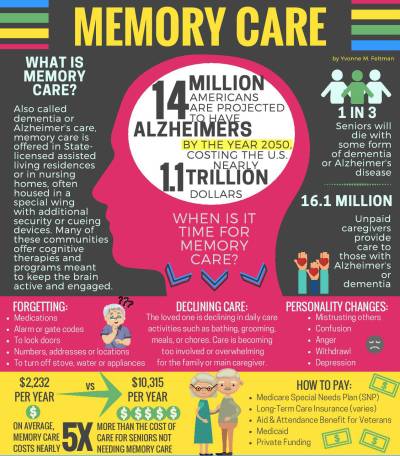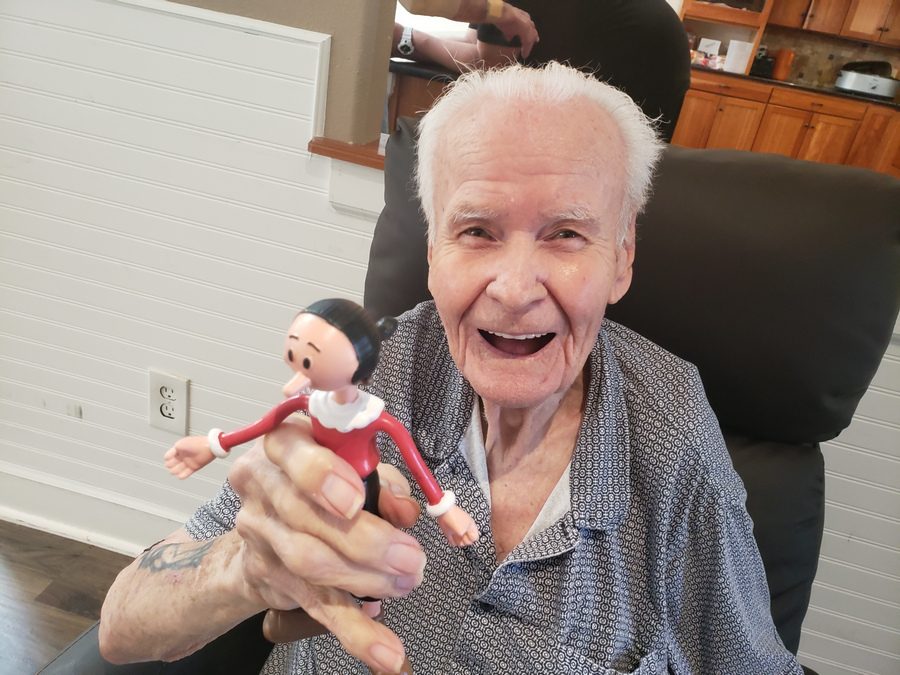Discover Boutique Memory Care Services with a Personal Touch Near You
All Concerning Memory Care Providers: Why Tiny Memory Care Residences Are a Great Choice
Memory care solutions play a vital duty in sustaining people with Alzheimer's and dementia. Little memory treatment homes stand out for their individualized method and intimate setup. With lower staff-to-resident proportions, these homes promote stronger connections and customized care. Locals gain from improved social interactions and a risk-free atmosphere. As families check out choices, recognizing the special advantages of little memory treatment homes ends up being important. What factors should be thought about when picking the ideal home?
Understanding Memory Treatment Services
While several might be familiar with general elderly care options, recognizing memory treatment solutions is vital for families facing the challenges of cognitive decline. Memory care particularly accommodates people with problems such as Alzheimer's condition and various other types of mental deterioration. These services give an organized setting that concentrates on enhancing the lifestyle for residents via specialized treatment and support.Memory care centers are developed to ensure safety and safety and security, often featuring protected settings to stop straying. Educated personnel are readily available around the clock to help with day-to-day tasks, medication administration, and individual treatment. In addition, memory care programs typically consist of cognitive excitement tasks, customized to engage residents and advertise psychological health. Households can profit from recognizing these services, as they enable notified decisions regarding their loved ones' treatment, guaranteeing that their specific demands and choices are attended to in a thoughtful and encouraging fashion.
The Benefits of Tiny Memory Treatment Houses
Little memory care homes provide unique advantages that can substantially boost the lifestyle for homeowners with cognitive impairments. One significant benefit is the intimate environment, which permits personalized communications amongst team and homeowners. This smaller setting cultivates purposeful relationships, reducing feelings of seclusion and anxiousness frequently experienced by individuals with memory issues.Additionally, the reduced staff-to-resident proportion in tiny memory care homes allows caregivers to offer more attentive supervision and assistance. This approach not just boosts safety and security yet likewise promotes a complacency for the residents.Moreover, tiny memory care homes can adjust swiftly to the one-of-a-kind demands and preferences of each resident, enabling an extra homelike atmosphere. Such an environment can urge social involvement and engagement in activities, ultimately enriching the everyday experiences of those coping with cognitive disabilities.
Personalized Treatment Plans for Homeowners
Individualized care plans are vital in memory care homes, as they accommodate the one-of-a-kind needs and choices of each citizen. These plans begin with comprehensive analyses conducted by proficient professionals, that assess cognitive capabilities, medical history, and personal interests. This tailored technique warranties that care is not just reliable however likewise respectful of each individual's self-respect and autonomy.Moreover, individualized care plans are flexible, enabling modifications as residents' needs advance with time. This adaptability promotes a complacency and experience, which is important for people living with memory obstacles. Caregivers are educated to implement these strategies consistently, offering assistance that lines up with the citizens' regimens and preferences.Ultimately, personalized treatment plans improve the quality of life for citizens by advertising health, involvement, and freedom, making them a basic aspect of memory treatment solutions in little memory care homes.
Developing a Home-Like Environment
Creating a home-like setting is important for cultivating convenience and experience in memory treatment setups, as it greatly affects citizens' psychological health. Tiny memory treatment homes usually focus on tailored touches, such as warm shade schemes, family images, and familiar furniture setups, which aid residents feel extra at simplicity. Including components similar to a conventional home, like comfy space and communal locations, encourages a sense of belonging.Moreover, making use of all-natural light and outside spaces can boost the environment, advertising relaxation and tranquility. Team member play a significant role in maintaining this environment by engaging with homeowners in a compassionate fashion, treating them like family. Regular tasks, such as food preparation or horticulture, can additionally add to a home-like feel, offering opportunities for locals to take part in meaningful experiences. On the whole, creating a nurturing atmosphere supports cognitive feature and psychological security, making it an important aspect of memory treatment solutions.
Improved Social Interaction and Neighborhood
Boosted social interaction and neighborhood are essential components of memory treatment solutions. By promoting personalized social interaction and creating a family-like environment, these services promote purposeful connections amongst homeowners. Group occasions and tasks better urge involvement, helping individuals feel extra included and sustained.
Personalized Social Engagement
While social interaction is necessary for overall wellness, many individuals with memory problems frequently struggle to engage meaningfully with others. Individualized social interaction in memory treatment homes addresses this challenge by creating customized activities that deal with locals' distinct rate of interests and capacities. By concentrating on specific choices, caretakers can promote connections that reverberate deeply with everyone. Activities such as art treatment, music sessions, and led conversations advertise cognitive stimulation and psychological expression. Furthermore, small team settings encourage sociability and enable for more intimate interactions, enhancing feelings of belonging. This technique not just fights sensations of isolation but additionally equips locals to maintain a feeling of identification, eventually adding to boosted psychological health and wellness and high quality of life.
Family-like Environment
In a memory treatment setting, fostering a family-like environment substantially enhances social interaction and develops a sense of community amongst homeowners. Smaller memory treatment homes often focus on intimate environments, enabling residents to form closer links with each other and employee. This nurturing environment advertises count on, which is crucial for individuals with memory disabilities. Residents are more probable to engage in discussions and share experiences, developing an encouraging network that minimizes sensations of solitude. The knowledge of shared spaces and regimens adds to a visit our website sense of belonging, even more motivating social communication (personalized memory care). In such settings, emotional bonds thrive, leading to enhanced total wellness and a higher top quality of life for residents as they navigate their daily experiences with each other
Team Activities and Occasions

Safety and Safety Functions in Small Residences
Several tiny homes created for memory treatment integrate necessary security and safety and security features to assure the wellness of locals. These homes frequently make use of safe and secure entry and exit factors to avoid wandering, a typical issue amongst individuals with memory impairments. In addition, monitoring systems and alarm devices improve tracking, ensuring that personnel can quickly respond to any uncommon activities.Interior designs are tailored for safety and security, with lessened risks such as clutter-free paths and sharp corners. Handrails and non-slip floor covering are typically mounted to decrease the risk of drops. Personnel are trained in emergency situation procedures, ensuring they are gotten ready for numerous situations.Moreover, individualized treatment plans may include analysis of private safety and security needs, supplying customized remedies for every citizen. In general, these security and protection functions create a nurturing environment where citizens can thrive while preserving their self-respect and self-reliance.
Exactly how to Pick the Right Memory Treatment Home
How can family members guarantee they pick one of the most appropriate memory care home for their loved ones? The decision requires cautious consideration of numerous factors. Initially, family members need to examine the center's team certifications and training, guaranteeing that caregivers are experienced in handling memory-related conditions. Next off, it's crucial to examine the home's atmosphere, concentrating on security functions and whether it promotes a feeling of area and belonging. Seeing the center can supply understanding into day-to-day activities and the social atmosphere, which are vital for psychological stimulation and emotional health. In addition, households must ask about the treatment strategies used, ensuring they are customized to specific requirements. Taking into consideration the home's location and availability for family members brows through can contribute to a smoother shift. By dealing with these aspects, family members can make an informed decision that prioritizes their loved one's comfort and lifestyle in a memory treatment setup.
Regularly Asked Concerns
What Qualifications Should Personnel Members in Memory Care Houses Have?
Employee in memory treatment homes need to have relevant certifications, experience in mental deterioration treatment, solid interaction skills, and empathy. Continuous training in behavior administration and restorative interventions boosts their capability to support residents effectively.
Just How Do Memory Treatment Solutions Differ From Conventional Assisted Living?
Memory treatment services focus especially on individuals with memory impairments, supplying customized support and organized settings. In contrast, conventional assisted living offers basic assistance with day-to-day activities, lacking the tailored technique essential for those with cognitive difficulties.
What Kinds of Activities Are Provided in Memory Care Houses?
Memory treatment homes typically use a range of activities designed to engage citizens. Typical options include art therapy, music sessions, our website cognitive games, exercises, gardening, and get-togethers, all intended at improving well-being and cognitive function.
Can Residents Bring Their Own Items to Memory Care Houses?
Residents can generally bring their very own valuables to memory treatment homes, enabling them to individualize their living area - personalized memory care. This technique assists click reference create a familiar environment, promoting comfort and a sense of identification for the people

Exactly How Are Relative Associated With the Treatment Refine?
Relative play a crucial role in the treatment process, usually joining decision-making, going to care meetings, and offering psychological assistance. Their participation cultivates a joint atmosphere, improving the local's total well-being and lifestyle. While numerous may be familiar with basic elderly treatment choices, understanding memory treatment solutions is vital for households facing the obstacles of cognitive decrease. These services offer a structured environment that concentrates on enhancing the high quality of life for homeowners with specialized care and support.Memory treatment facilities are made to ensure security and safety, frequently featuring secured atmospheres to protect against wandering. Individualized treatment plans are crucial in memory care homes, as they provide to the distinct requirements and preferences of each homeowner. Staff participants in memory care homes must possess relevant accreditations, experience in mental deterioration treatment, strong interaction skills, and concern. Memory care solutions concentrate specifically on people with memory problems, offering customized support and structured environments.